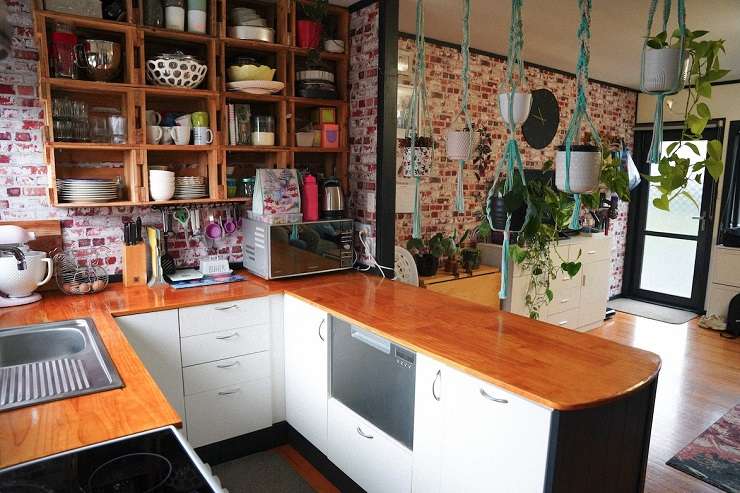Surveys tend to reveal a bit about the character of the people they are canvassing. They also reveal a bit about the pollsters themselves.
The results of three recently completed surveys released to the media have highlighted the very different concerns of Kiwis and Brits when it comes to the housing market.
New Zealanders, according to global furniture giant IKEA, are worried about clutter and use their garages for everything but their cars. Britons on the other hand are worried orgasms are getting in the way of homeownership, telling erotica publisher Bloom Stories they’d give up sex for a year if it meant they could buy a house.
A separate survey, by UK property portal Zoopla, found that Brits also tend to be swayed by the furniture and artwork on display at an open home rather than the number of bedrooms and size of the kitchen.
Start your property search
So let’s go through the survey results. New Zealand first. Ahead of IKEA’s New Zealand debut late next year, the Swedish firm visited just over 500 New Zealand homes and dug deep into their living habits.
It revealed Kiwis don’t tend to park their cars in their garages, while cluttered kitchens and hallways were the biggest complaints.
Discover more:
- Inspections in crisis: Buyers spending up to $10,000 on ‘worthless’ building reports
- Mortgagee sale of penthouse apartments in former leaky building
- Revealed: The Kiwi homes earning more than a top CEO's pay
Some 93% of the respondents used their garages as laundries or extra living spaces, which shocked the IKEA staff members carrying out the home visits.
Messy hallways, cluttered with shoes, keys, bags, and coats, were a big issue for 88% of the residents surveyed, while lack of storage in the kitchen was a problem for just under half the households (48%) surveyed.
The IKEA Life at Home report is the first to be carried out in New Zealand by the global chain. It wanted to better understand Kiwi living habits before it opened its first store in Sylvia Park, in Auckland. The study was also backed up with quantitative research involving over 37,000 participants worldwide including 506 New Zealanders.
Another interesting finding was that some 43% of Kiwis surveyed wanted to make extra cash from their home, with the staff members coming across spare rooms and granny flats converted into rental spaces.

Dated kitchens and not enough for space for all the small appliances was a major frustration for Kiwi households. Photo / Supplied
Christine Gough, head of home furnishing and retail design at IKEA Australia and New Zealand, said Kiwis treated their garages differently to customers in other parts of the world.
“For New Zealanders, the garage is considered an extension of the home, where many activities happen. In other countries, a garage is just a car parking space.”
She said the Australian staff members found bedrooms, home gyms and offices inside Kiwi garages. “It was unusual and we loved it. It was something we had never seen before.”
IKEA would now look at how it could make its products more relevant to the New Zealand market. “Same accessories, same cupboard and colour and things – the range doesn’t differ. What differs is the way that we present that range.”
IKEA staff also noticed the layout of New Zealand homes was different to those in other countries. Kiwi homes had more windows and more technology. “Digital doorbells really jumped out at us. I know it’s kind of an odd one, but everybody has one.”
More than 1000 households applied to IKEA’s invitation to be part of the research. They were then narrowed down to ensure a widespread demographic and wallet size.

IKEA Australia and New Zealand home furnishing and retail design leader Christine Gough said finding so many garages used as additional living spaces was "very unusual". Photo / Supplied
Harcourts salesperson Deb Talbot-King, who has a background in interior styling, said the priority for people tended to be modern kitchens and a scullery, plenty of storage and two bathrooms, including one with a bath.
Talbot-King just sold a renovated house in Auckland’s Beach Haven, which was extremely popular with punters. While it had ticked almost all of the boxes, it did attract criticism on storage space.
“What I’ve found with a lot of newer places these days is they don’t have the linen cupboards like they used to and they don’t always have the storage and they don’t always have the big double wardrobes. These days houses are built with less storage or you’ve got renos and they’ve turned it into something.”
Extra parking for a boat or trailer was also a bonus, she said.
While some people wanted a double garage, she didn’t think it trumped the importance of a modern kitchen.
“The kitchen is a selling point. If everything else is good and the kitchen is not and people feel like it needs to be replaced – what do you spend $20,000 up to $50,000 to replace a kitchen. So a kitchen is a real plus.”
Over in Britain, buyers were getting worked up about sex, saving for a deposit and furniture.
According to a study of 2000 adults by audio erotica creator Bloom Stories, Gen Z and millennials would give up sex for a year to get a deposit for a home. Older participants were less willing to sacrifice their sex lives just to get on the property ladder, although it wasn’t clear how being celibate would help Brits with their mortgage.
A separate study by Zoopla and Halifax bank found that a fifth of home buyers spent less than 20 minutes looking at a home before making a decision to buy or not. Most of that time was spent looking at the furniture and artwork rather than the house itself. The average time spent looking at a property before buying it was 49 minutes over an average of 2.1 viewings.
Talbot-King agreed that how a house was presented was key, which was why she spent time with vendors working out what needed to be done to a home to make it look as good as it possibly could before it was listed for sale.
“It does make a difference because at the end of the day most of the time it’s an emotional purchase so you want people to go in there and fall in love with the place. They’ve got to imagine living in it. So, if you’ve got it as nice as you can then there’s more chance of them really liking it.”
- Top insights from the IKEA New Zealand Life at Home Report:
· 93% of garages weren’t for cars
· 88% of homes struggled with crowded entryways
· 48% of homes had challenges with kitchen storage
· 43% of New Zealanders wanted their ideal home to help them save or earn money
· 35% of New Zealanders grow their own fruit and veggie gardens
















































































